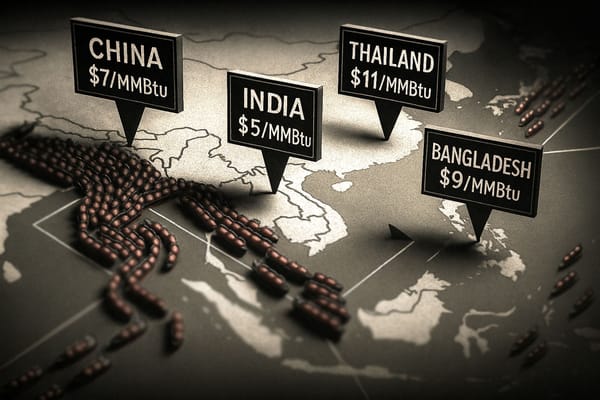NOCs’ painful renewables pivot, Volcano-powered bitcoin + MORE
💥Energy Flux💥Friday 11th June 2021

💥Energy Flux💥Friday 11th June 2021


DEEP DIVE: How low must LNG prices go to unlock Asian demand?

TTF bull trap turns investment funds into bag holders | EU LNG Chart Deck: 26 June 2025

TTF turns on a dime, but is risk being priced properly? | EU LNG Chart Deck: 20 June 2025

More choice. Same sharp insight. Now with a free trial.